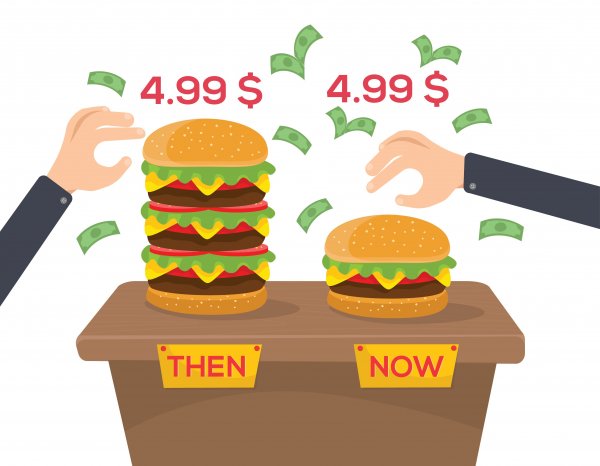Raising The Price Up
According to booking.edu, “The coronavirus 2019 disease (COVID-19) pandemic has created a public health and economic crisis in the United States. The pandemic has disrupted lives, pushed the hospital system to its capacity, and created a global economic slowdown.” Because of the financial loss during the pandemic, the economy has been experiencing a vast increase in prices. AP English teacher Lisa Bonner believes inflation has much to do with economic profit.
“I think inflation has much to do with higher grocery prices, gas prices, and everything. The cost of everything goes up to recover from the past economic damage,” said Bonner.
There has been a lot of inflation in the past. The most effective one, similar to what’s happening now, was inflation in the 1970s. AP Human Geography, Dena Marlar elaborates on her first inflation experience.
“When I was young, in the 70s, we had a massive inflation rate, and gas prices were incredibly high. I remember that because I had just gotten my first car. I was paying for my gas, and I remember how expensive it seemed. Even though the price doesn’t even compete with what it is today, I remember it doubled. Like it was maybe 35 cents a gallon, and it went up to 70 cents a gallon, that was a big deal at the time,” said Marlar.
Most of the time, inflation alters a family’s finances. Large families are particularly impacted when having to adjust their spending habits. Often, it also affects the firstborn child as they take on extra responsibility in their household to help provide. Senior Joia Perry explains how firstborn teenagers feel pressurized to balance their family responsibilities and school.
“I had a friend who was the firstborn in her family. She had a big family. Due to the rice in foodstuffs and utility, she had to take lots of jobs. It made her feel like she had to make money early and help with her family’s financial struggles. She had to be financially independent as she wasn’t the only child in her family,” said Perry.
Inflation has stirred the increase in utility bills. It has made various people take more than two jobs to pay the bills and have the basic needs of life. Sometimes, people have to cough up a lot of money for gas due to the distance of driving from home to their place of work. Advanced English II teacher, Amy Markan illustrates how the increase in bills leads to taking more than one job.
“Recently, you see home bills increasing rapidly. The utility bills I paid last year were half the price for this year. Then we look at gas prices fluctuating every day. Today they are at $2.69, and tomorrow it’s $ 4.99. Due to all this increase, people need to take more than one job to meet up. This gas increase affects the people who have jobs far from home more than others. It’s like all your work money goes into gas payments and utility bills, leaving the basic needs of life behind,” said Markan.
This period of high increase has reduced the idea of savings. People nowadays live paycheck to paycheck without depositing money into their savings accounts.
“An individual trying to save is impossible, especially in this period. An example is the mortgage increase. When I was buying my house, the mortgage was affordable with my salary. After covid, it increased by 7%. Imagine if it was a single person as a teacher, no kids, and no marriage. I doubt I could afford my house right now, because of the increase in basic expenses. It will also hinder me from saving because I would be paying a lot, making me live off my paychecks,” said Markan.
The cost of living has drastically increased due to inflation. Although there have been several inflations, the after-covid inflation is going down in history as one of the most impactful. People are compelled to take multiple jobs at once, pay the bills and buy important items. All this payment hinders the idea of saving as a lot of people live paycheck to paycheck.
- Grade 12 with 3 years of experience.
I joined this program because I was interested in writing

